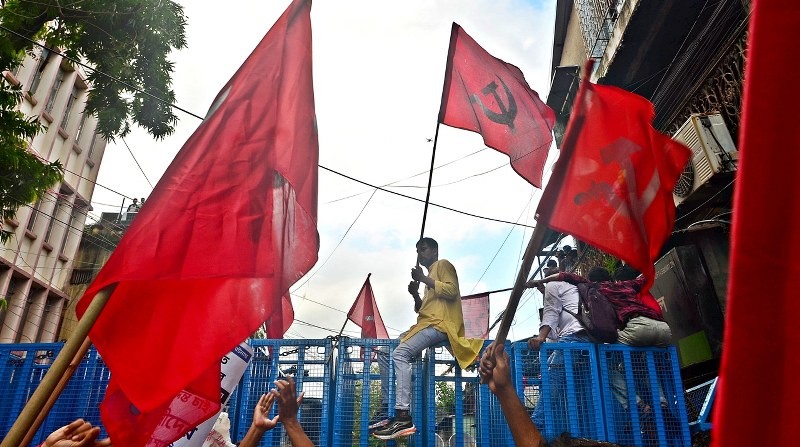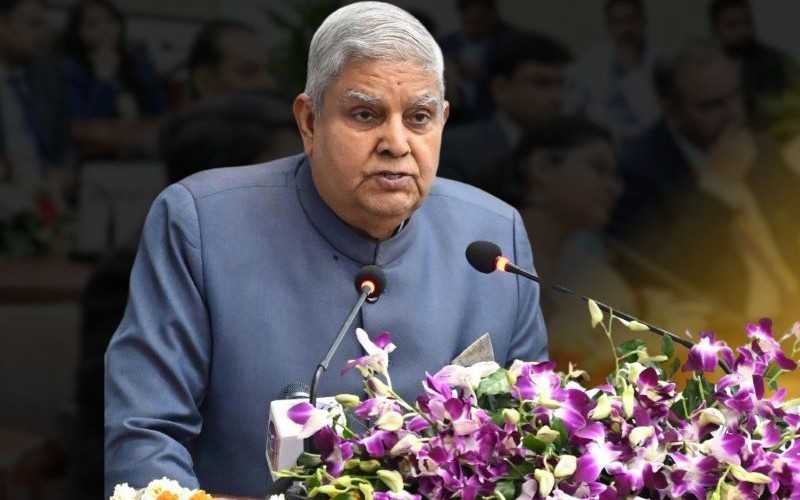American Delusions and Politics of Religious Freedom

The US state department criticised India’s record in its State Department’s report on International Religious Freedom for 2023 and alleged the government had failed to protect members of religious minorities from violence or investigate hate crimes.
Secretary of State Antony Blinken unveiled the annual report and said, “In India, we see a concerning increase in anti-conversion laws, hate speech, demolitions of homes and places of worship of members of minority faith communities.”
US ambassador-at-large for international religious freedom, Rashad Hussain, faulted efforts by Indian police, “Christian communities reported that local police aided mobs that disrupted worship services over accusations of conversion activities, or stood by while mobs attacked them and then arrested the victims on conversion charges.”
In a strongly worded riposte India has rejected the US government report saying that the findings were “deeply biassed” and “driven by vote bank considerations”.“As in the past, the report is deeply biassed, lacks an understanding of India’s social fabric, and is visibly driven by vote bank considerations and a prescriptive outlook,” external affairs ministry spokesperson Randhir Jaiswal told a regular media briefing.
“We therefore reject it. The exercise itself is a mix of imputations, misrepresentations, selective usage of facts, reliance on biassed sources, and a one-sided projection of issues,” he said. This, Jaiswal said, includes the depiction of India’s constitutional provisions and laws, and “selectively picked incidents to advance a preconceived narrative.”
Each year the US State Department writes a report on the status of religious freedom in every country in the world. Many observers have sharply critiqued the document over a range of issues, usually pointing to omissions, errors and perceived biases of varying degrees. Upon examination, the reports draw upon a set of pre-existing genres that often influence how international religious freedom is talked about in the United States: universal human rights and idealised religious pluralism.
Nearly two centuries ago political scientist Alexis de Tocqueville, best known for ‘Democracy in America,’ had claimed that the moral empire in the United States operated with an irresistible force upon individuals through the mechanisms of the state.
Despite the fact that overtly religion has remained out of the formal domain of American politics, it has played an essential part in establishing the American moral empire. That irresistible force of enforcing a ‘moral empire’ seemingly still manifests itself. US domestic politics plays a systematic role in shaping topic prevalence.
The timing and rare criticism of India, a close strategic partner of the US, deserves examination. Democratic President Joe Biden is approaching the end-point of his term in office. The obvious question to ask is whether his presidency had changed anything at all, or had the Trump administration's approach to foreign relations persisted.
In the ongoing election campaign Biden’s team is seemingly reinforcing his previous 2020 campaign promise to restore America's moral standing. Democratic foreign policy makers appear to be overly influenced by the belief that the US can be the vanguard of a global democratic revolution.
President Biden and his administration are reinterpreting what it means to promote democracy in light of its own strategic priorities. It is possible that the Biden team is prioritising international religious freedom policy to pursue a clear Christocentric approach that includes a strong defence of religious freedom, with vigour, ahead of the November vote.
In an effort to distinguish itself, the Biden administration is expanding the conceptions of secular and democracy towards a broader range of rights of a more economic and social nature in India, to gain an edge in the upcoming elections.
There is no doubt that America is founded as a democracy committed to fundamental rights protected by the rule of law. It is wrong to assume, however, that all the founding fathers were committed to an activist foreign policy designed to promote these values beyond America's shores.
In fact each country has its own unique, culturally and religiously-informed, understanding of religious freedom. For the US, this may mean human rights with American characteristics, but that does not necessarily mean that this policy should be extended to all nations.
It is fair to question if the imprecision of the US State Department's Report on International Religious Freedom for 2023 about the nature of the “secular” fosters beliefs that privilege non-religious belief systems while putting religion at a disadvantage?
Indian folk traditions typically denote a syncretic style of religious practices described to overcome the boundaries of separate Hindu or Muslim identities. Their pluralist embrace notwithstanding, these accounts of tolerance have been criticised as an ‘essentially Hindu’ perspective that runs the risk of denying Muslims difference.
Indian traditions possess distinctive qualities of tolerance that provide the foundations for harmonious pluralism. Tolerance has been a recurring motif in discussions of Indian politics. Blind adherence to Western notions of secularism obscures and threatens to disrupt deep rooted indigenous resources of tolerance.
References to tolerance abound in discussions of Hinduism. In this context, tolerance often denotes a non-creedal or non-dogmatic stance, that is, in fact, praised in scholarship on religious pluralism and interfaith dialogue for its uniquely accommodating attitude to religious differences.
Secularism is prevalent in Indian public life across the political spectrum. Tolerance is a prevalent secularist ideal which provides an important narrative framework, for casting certain forms of politics, either as secular and legitimate or as destructive.
 India since its independence in 1947 has been a secular state. Image credit: Unsplash
India since its independence in 1947 has been a secular state. Image credit: Unsplash
Secularism requires definitions of ‘reasonable religion’ and ‘normal politics’, and it also helps to produce them. In India, the tolerance ideal provides the measure of the religious civility that is judged compatible with secularism, and it defines the limits of normal secular politics.
Thus, given the wide diversity of human societies, there cannot be one model of religious freedom that suits all countries. Nor can one country’s approach to religious liberty serve as a model for another if by “model” one means something that can simply be copied and transplanted. Each nation’s system is the product of its own distinctive history and circumstances.





